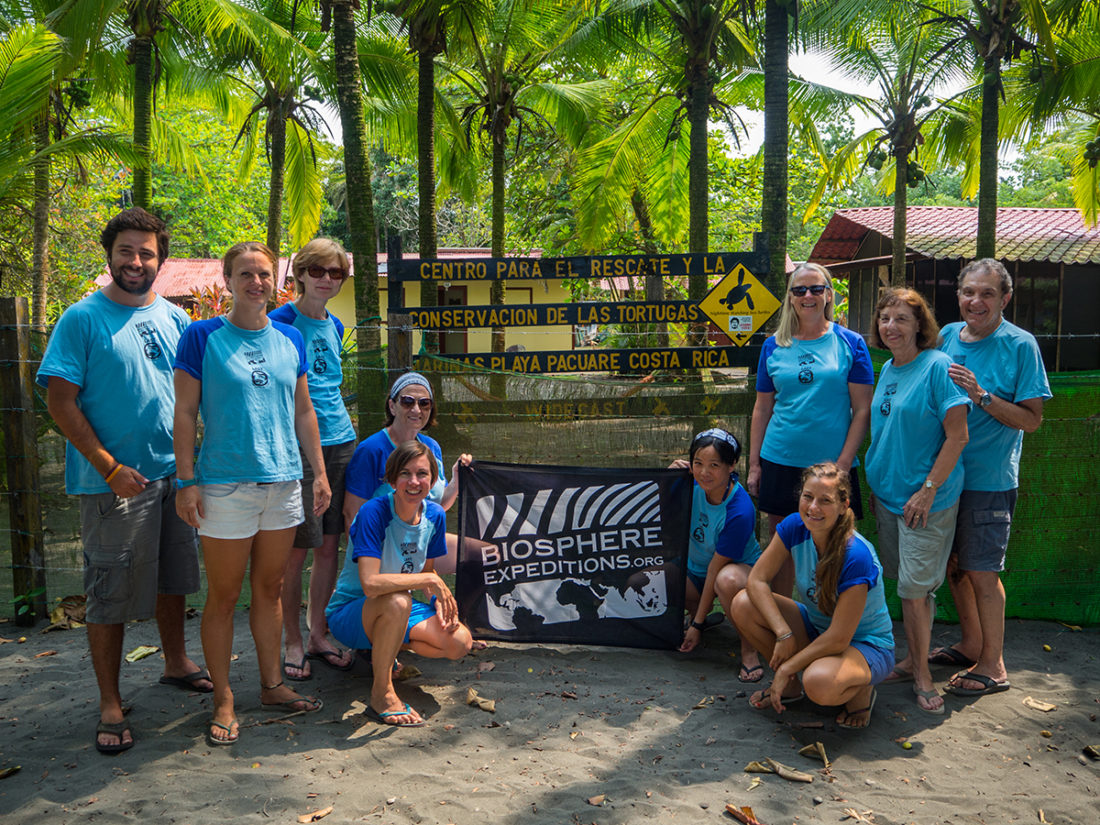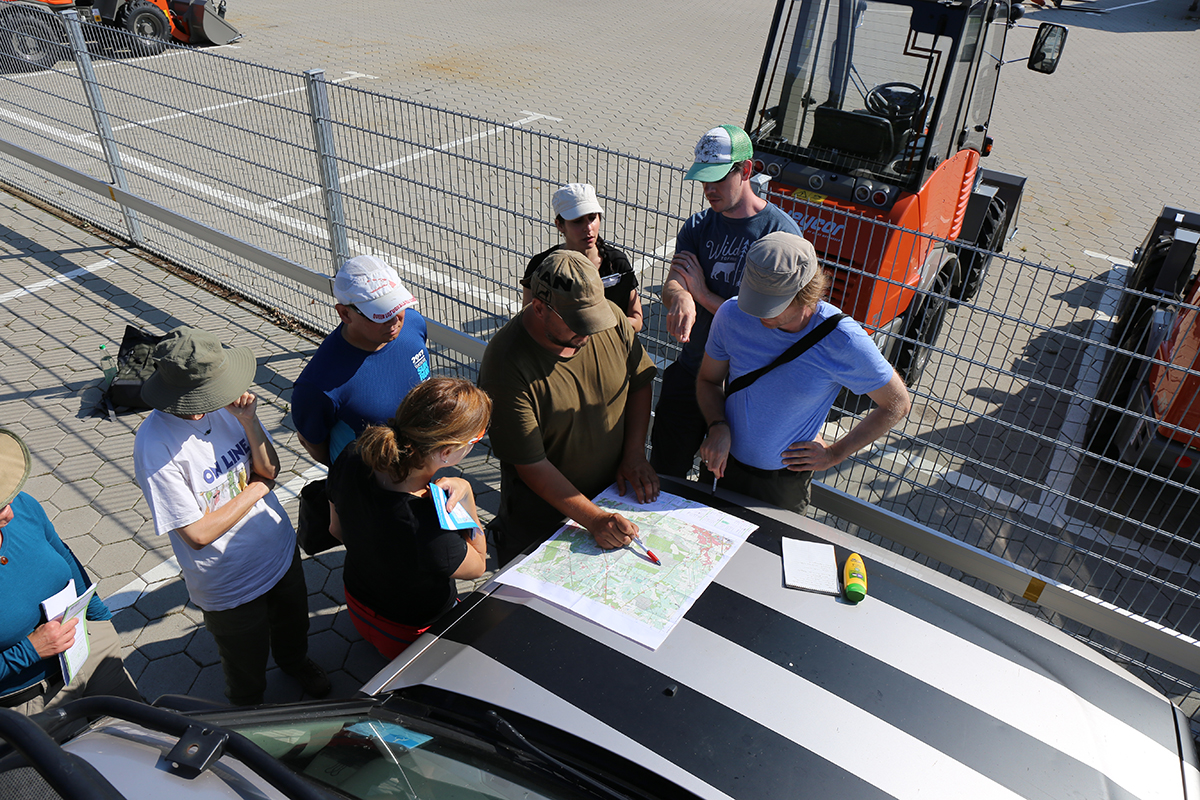Biosphere Expeditions: Mountain protection worldwide through citizen science and volunteering
Mountain protection worldwide through citizen science and volunteering
Project Status: Ongoing
Location: International
GOALS AND OBJECTIVES
Biosphere Expeditions is a wildlife conservation non-profit first and foremost. But we also empower ordinary people by taking them on our expeditions worldwide to work hands-on in wildlife research and conservation. Biosphere Expeditions is also a multi-award-winning organisation, and a member of IUCN (International Union for the Conservation of Nature) and the UN Environment Programme. For us successful conservation is the collective effort of individuals. We invite everyone to join us on our wildlife and wilderness projects all over the world, many in mountain environments such as the Altai, Tien Shan, Carpathians, Cape Fold Mountains, Dhofar Mountains and the Pyrenees. Biosphere Expeditions gives everyone, whatever their background, age or education, the chance to become a citizen scientist during their holiday time.
 The foundation of our work is science and local need. We focus on sustainable conservation projects that target clearly defined, critical issues that humankind has the power to change. Our international volunteers work hand-in-hand with local biologists and communities to drive positive outcomes for biodiversity – the creation of a protected area in the Altai where snow leopards now thrive is just one recent example. Other achievements include the creation of protected areas on four continents, the implementation of our conservation recommendations and species protection plans by numerous national and regional governments and NGOs, scientific and lay publications, as well as capacity-building, training and education all over the world.
The foundation of our work is science and local need. We focus on sustainable conservation projects that target clearly defined, critical issues that humankind has the power to change. Our international volunteers work hand-in-hand with local biologists and communities to drive positive outcomes for biodiversity – the creation of a protected area in the Altai where snow leopards now thrive is just one recent example. Other achievements include the creation of protected areas on four continents, the implementation of our conservation recommendations and species protection plans by numerous national and regional governments and NGOs, scientific and lay publications, as well as capacity-building, training and education all over the world.
CONTRIBUTION TO MOUNTAIN PROTECTION
Altai: We have helped create Saylugem National Park in the Altai Mountains, an area where snow leopards now thrive. When we started, there was no national park, no rangers, no community integration and incentives based on intact nature and snow leopard presence. Poaching was widespread. When we finished, a national park was established with rangers patrolling the area. The community is now fully integrated into research efforts and derive economic benefit from helping with camera-trapping and other research activities. There are also micro business initiatives such as providing simple accommodation and catering, felt souvenirs and other services to adventure travellers and self-drive safari visitors. These initiatives depend on intact mountain environments and the presence of wildlife for their success. In this way, the local community has become a steward of the mountain environment in a stable and sustainable way. The project took 11 years to complete.
Kyrgyzstan: We are at the moment trying to apply the same model to the Kyrgyz Alatoo range in Kyrgyzstan, where snow leopards roam in an unprotected area. We are into year three of a ten year project.
Spanish Pyrenees: Together with our partners in Spain, we helped to reverse EU high altitude carcass removal regulation, which was designed to combat the spread of BSE, but was starving high mountain vultures and bears.
Slovakian Carpathians: In the Slovakian Carpathians, we are working on a project with large carnivores (lynx, wolf, bear). With higher numbers of wolves, lynx and bears in the Carpathians since the second half of the 20th century, conflicts with local people have come to public attention. The concurrent emergence of new threats to wildlife and habitats presented by economic development means that a more sensitive approach is required, one based on a sound understanding of the place of carnivores in ecosystems, but also considering their impact on local people. As very little modern scientific work has been done on large carnivores in Slovakia, there is much to be done in order to achieve these goals. The project in Slovakia has just started tackling these issues.
Dhofar Mountains, Oman: This project was less successful. It researched the ecology and status of the Arabian leopard in the Dhofar and Musandam regions of Oman. The project was stopped when it became clear that there was little support and willingness from government to act upon recommendations locally.

BENEFIT FOR LOCAL COMMUNITIES
Local communities (tourism and otherwise) are at the heart of what we do. Because of this we work with local scientists wherever possible and publish our expedition reports and publications in co-authorship with them.
We hire only local services for the expedition logistics, be it porters, guides, cooks, horses, etc. Where local services are from companies, we seek out local businesses, rather than international corporations, for example for car hire, hotels, base camp equipment, onwards tourism services, etc.
We run a placement programme on all our expeditions, which integrates local people into the expeditions at no cost to them.
We also work with local communities on incentive-creation through nature. For example, in the Altai we have converted local poachers into conservationists by paying them for verifiable camera trap pictures of snow leopards surviving year-on-year.
We provide capacity-building and jobs. In the Pyrenees, for example, have helped to finance a field research station. This is now used by research bodies year-round as a centre for conservation & research, providing training for researchers, as well as employment for the local community.
GOING FURTHER THAN “BUSINESS AS USUAL”
Placement programme and capacity-building
Our placement programme on all our expeditions, which integrates local people into the expeditions at no cost to them. This placement programme, amongst other things, seeks to empower local communities to establish their own conservation schemes. We also provide capacity-building and jobs as explained above.
Food policy
The United Nations has identified vegetarianism as one of the major ways to reduce impact; it has also concluded that a global shift toward a vegetarian or vegan diet is necessary to combat the worst effects of climate change. In line with all of the above Biosphere Expeditions is, to our knowledge, unique in offering a purely vegetarian diet wherever possible on expedition.
Sponsorship policy
Biosphere Expeditions will not accept support from corporations whose activities, services or products come with a persistent and large-scale negative impact on the environment or human health & welfare or corporations who Biosphere Expeditions judges to obtain their revenue by unethical means or who have a record of unethical conduct.
Awards and accolades
The fact that Biosphere Expeditions goes well beyond “business as usual” has been recognised through a multitude of awards and accolades such as “Best Volunteering Organisation” (First Choice Responsible Travel Awards), “Top Conservation Holiday” (BBC Wildlife, UK), “Best Holiday for Green-Minded Travellers” (Independent on Sunday, UK), “Best New Trip” (National Geographic Adventure, USA), “Top Holiday for Nature” (P.M., Germany), “Environment Award” (from the German government), etc. A full overview is on www.biosphere-expeditions.org/awards.

PROJECT MANAGEMENT
Biosphere Expeditions is a non-profit charity in various countries.
We have worked in conservation since 1999 and over this period statistics include over a quarter of a million person hours worked in voluntourism wildlife conservation & research, over two million $ put directly into conservation project worldwide, over one million $ put into local projects and communities as in-kind donations. Finances are audited and public. The organisation is headed by an Executive Director (Dr. Matthias Hammer) and management and support staff.
We have several ways of monitoring our successes. At the most basic level, Biosphere Expeditions will always publish a report for each expedition. Each expedition year is matched by an expedition report for that year, which deals with the two main areas that expedition participants contribute to: funding and data collection. Chapter 1 of each report, written by Biosphere Expeditions, reviews the expedition logistics and publishes an expedition budget, which shows in a clear and transparent way income and expenditure for each expedition and the percentage of income spent on the project. Chapter 2 onwards, written by the expedition scientist, shows who collected what data, how they were analysed, what the conclusions were, as well as the conservation recommendations and actions flowing from this, and what future expeditions should do.
In this way, each expedition comes full circle for its participants, stakeholders and partners. As far as we are aware, Biosphere Expeditions is the only voluntourism organisation in the world that has a direct and transparent link between the work done by citizen scientists and an expedition report.
On other levels we meticulously record the outcomes of our work in our achievements on several levels: wildlife and habitat conservation, capacity-building & jobs, education & awareness, reports & publications, awards & accolades.
SUPPORTING STEWARDSHIP IN MOUNTAIN REGIONS
Our volunteer guests are an integral part and the linchpin for our conservation efforts. Our expeditions with travellers from all over the world are not isolated luxury trips. Instead our guest are intimately involved in the expedition, often in remote and challenging environments and circumstances. We always work with local service providers, people and businesses and integrate local people into our expeditions, either as staff, scientists or through our placement programme. As such our expedition experiences are totally immersive for participants (local and international). Since wildlife conservation is at the very heart of what we do, this immersive experience automatically results in a very significant raising of awareness about wildlife conservation issues, especially because we do not pretend that the planet can be saved on a two-week holiday, or that field conservation always achieves and never goes wrong. Instead we expose people to difficult issues and the realities of field conservation – adventure, successes, warts, failures and all.
After the expedition experience we encourage people to stay involved through our Look Ahead programme, and – on demand – get them in touch with local conservation efforts to continue their conservation activities locally.
Finally, Biosphere Expeditions is very active in achieving decency in volunteer involvement and voluntourism. With no international standard in the sector and a host of charlatan profiteers jumping on the volunteering bandwagon recently, voluntourism has started to accumulate a negative reputation to the detriment of the many hard-working, non-profits in the sector, which are trying to alleviate a multitude of humanitarian and wildlife conservation issues in a ethical and sustainable way. Biosphere Expeditions’ “Top Ten Tips” campaign gives guidance to those considering a voluntourism holiday and in doing so has attracted the attention of the international media. It has also firmly established Biosphere Expeditions as one of the most ethical showcase voluntourism providers.
CONTACT
Biosphere Expeditions
E: m.hammer@biosphere-expeditions.org
W: www.biosphere-expeditions.org
Facebook
SUPPORTING DOCUMENTS
Biosphere Expeditions: Useful Links
Biosphere Expeditions: Sample Expedition Report, Tien Shan mountains of Kyrgyzstan, 2015

